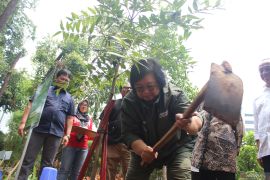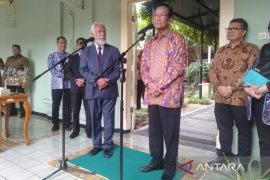Bakar noted in Gunung Kidul on Saturday that the special forest located in Karangmojo spans an area of 30 hectares that is maintained by 120 farmers.
Earlier, this special forest functioned as a garden for research that had lasted for over a decade, where the researchers discovered at least 30 rare species.
"We discussed with the Yogyakarta governor about the need for jackfruit trees for wood. A jackfruit tree with a fairly straight trunk (is suitable for) making gamelan and a habitat for rare animals," Bakar explained.
According to the minister, the Karangmojo special forest also withholds local knowledge and creativity, thereby becoming a part of the local people's culture.
"(The forest) not only (supports) cultural but also environmental sustainability," she added.
Furthermore, she expounded that farmers can develop the special forest into a hub for economic growth, such as turning it into a tourism attraction that is based on ecology, as the forest faces the sea.
"The sea view is amazing and can be utilized as a productive place for ecotourism by the people," she highlighted.
Meanwhile, Yogyakarta Governor Sri Sultan Hamengkubuwana X deems it important for the forest to proffer benefits to the people. After the jackfruit plant matures, its fruits can be harvested, but its tree should not be cut down to make furniture or gamelan, a traditional musical instrument.
Related news: Gamelan an intangible cultural heritage: UNESCO committee
Instead, he advised opting for teak to be used for meeting the wood requirements.
"Most plants are those of the people. Farmers can plant food crops and teak. They can cut down and sell (the teak) for (paying for) school tuition or other needs, though they need licensing first," the governor added.
Related news: Bali: Beats of Paradise receives thumping response in South Korea
Translator: Sutarmi, Kenzu T
Editor: Rahmad Nasution
Copyright © ANTARA 2022












